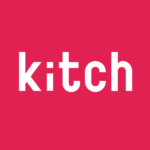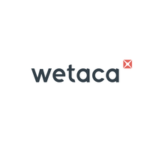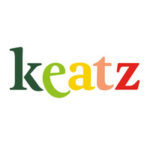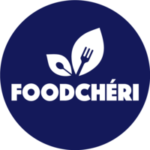Online food ordering has been soaring the last two months all across Europe. Customers aren’t just dabbling in grocery delivery from online supermarkets – they are sampling direct-to-consumer meal kits and prepared meals more than ever before too.
While some food delivery companies are having turbulent times, the others are booming and experiencing the unprecedented number of orders. With this in mind, we have compiled this list of 10 fast-growing European startups focusing on ready-made food delivery. Maybe some are even running in your city.
 Kitch – The Portuguese startup Kitch is building delivery-first kitchens to house a selection of the city’s favourite restaurants and most creative chefs. The startup was founded in 2019 by Rui Bento and Nuno Rodrigues, two former executives of Uber. Kitch has recently announced raising a €1 million pre-seed financing round which will allow the team to develop and scale its operations and to take a first step to making food delivery more sustainable.
Kitch – The Portuguese startup Kitch is building delivery-first kitchens to house a selection of the city’s favourite restaurants and most creative chefs. The startup was founded in 2019 by Rui Bento and Nuno Rodrigues, two former executives of Uber. Kitch has recently announced raising a €1 million pre-seed financing round which will allow the team to develop and scale its operations and to take a first step to making food delivery more sustainable.
 i-lunch – i-lunch is digital canteen startup founded by Victoria Benhaïm in 2017. The French company provides a delivery platform for balanced chef-cooked meals, connected to health data intended to create an ideal week’s diet. Since the beginning of the confinement, i-lunch has been supporting Parisian care-workers by distributing free snacks and fruit baskets.
i-lunch – i-lunch is digital canteen startup founded by Victoria Benhaïm in 2017. The French company provides a delivery platform for balanced chef-cooked meals, connected to health data intended to create an ideal week’s diet. Since the beginning of the confinement, i-lunch has been supporting Parisian care-workers by distributing free snacks and fruit baskets.
 Wetaca – Wetaca is a Madrid-based foodtech company that delivers healthy and varied chef-made meals vacuum packed to guarantee freshness up to 8 days. Founded in 2015, Wetaca has been profitable since the very beginning. In the last few months, the startup has experienced growth in the number of clients and orders– especially in Madrid (120% increase) and Barcelona (70%). With its recent €275K investment in March 2020, Wetaca is planning to grow and expand across Spain, including the cities of Bilbao, Murcia and Granada.
Wetaca – Wetaca is a Madrid-based foodtech company that delivers healthy and varied chef-made meals vacuum packed to guarantee freshness up to 8 days. Founded in 2015, Wetaca has been profitable since the very beginning. In the last few months, the startup has experienced growth in the number of clients and orders– especially in Madrid (120% increase) and Barcelona (70%). With its recent €275K investment in March 2020, Wetaca is planning to grow and expand across Spain, including the cities of Bilbao, Murcia and Granada.
 Keatz – Keatz has been operating since 2016 as a family of virtual restaurants that provides contemporary dishes for delivery. The company creates recipes, process, and packaging to ensure that the meals which arrive at people’s doors have the same quality that those leaving the kitchen. Currently it operates a total of 10 virtual restaurants in Berlin, Munich, Madrid, Amsterdam and Barcelona, employing around 200 people and focusing exclusively on food ‘made for delivery’, with minimal capital expenditure and time. In 2019, the startup completed a €12 million Series B funding.
Keatz – Keatz has been operating since 2016 as a family of virtual restaurants that provides contemporary dishes for delivery. The company creates recipes, process, and packaging to ensure that the meals which arrive at people’s doors have the same quality that those leaving the kitchen. Currently it operates a total of 10 virtual restaurants in Berlin, Munich, Madrid, Amsterdam and Barcelona, employing around 200 people and focusing exclusively on food ‘made for delivery’, with minimal capital expenditure and time. In 2019, the startup completed a €12 million Series B funding.
 HungryPanda – Founded in 2016 in the UK, HungryPanda is a food and beverage online platform which provides delivery services from Asian restaurants and supermarkets. This startup is seen as one of the key players in the field of catering delivery specialising in Chinese food. First launching its service in Nottingham, HungryPanda is currently operating in 6 countries and 30+ cities including the UK, France and Italy. In February 2020, the startup announced raising €18.3 million which will be used for hiring, product development and global expansion, particularly in the United States.
HungryPanda – Founded in 2016 in the UK, HungryPanda is a food and beverage online platform which provides delivery services from Asian restaurants and supermarkets. This startup is seen as one of the key players in the field of catering delivery specialising in Chinese food. First launching its service in Nottingham, HungryPanda is currently operating in 6 countries and 30+ cities including the UK, France and Italy. In February 2020, the startup announced raising €18.3 million which will be used for hiring, product development and global expansion, particularly in the United States.
Bella&Bo na – Bella & Bona is a Munich-based foodtech startup offering a premium quality food delivery service. They offer a workplace food programme with customised healthy and balanced Mediterranean lunches delivered to the companies. Founded in 2018, the company raised a €2.7 million round in January 2020 led by Plug and Play, with additional funding from investors with a strong entrepreneurial background.
na – Bella & Bona is a Munich-based foodtech startup offering a premium quality food delivery service. They offer a workplace food programme with customised healthy and balanced Mediterranean lunches delivered to the companies. Founded in 2018, the company raised a €2.7 million round in January 2020 led by Plug and Play, with additional funding from investors with a strong entrepreneurial background.
 AllPlants – Driven by their mission to build Earth’s most forward-thinking food company, AllPlants offers vegan hand-prepared meal delivery service across the UK. To incentivise more plant-based living, they create delicious and nutritionally balanced dishes made from 100% plants delivered frozen to customers for freshness, taste and convenience. In February 2020, allplants completed a €3.9 million funding round through investment platform Seedrs. Funds will be used to develop new food categories and serve over 60,000 meals a week from their London-based production kitchen.
AllPlants – Driven by their mission to build Earth’s most forward-thinking food company, AllPlants offers vegan hand-prepared meal delivery service across the UK. To incentivise more plant-based living, they create delicious and nutritionally balanced dishes made from 100% plants delivered frozen to customers for freshness, taste and convenience. In February 2020, allplants completed a €3.9 million funding round through investment platform Seedrs. Funds will be used to develop new food categories and serve over 60,000 meals a week from their London-based production kitchen.
 FoodCheri – Foodcheri is a foodtech pioneer founded in 2015 by former LaFourchette executives, which delivers chef-prepared meals to busy professionals via smart phone. The French startup operates from a central kitchen with its own culinary team and chefs integrating the entire value chain from meal prep to delivery. In 2018, Sodexo, quality of life service provider, took a majority stake in the company which provided FoodCheri with a cash injection to expand its operations nationwide.
FoodCheri – Foodcheri is a foodtech pioneer founded in 2015 by former LaFourchette executives, which delivers chef-prepared meals to busy professionals via smart phone. The French startup operates from a central kitchen with its own culinary team and chefs integrating the entire value chain from meal prep to delivery. In 2018, Sodexo, quality of life service provider, took a majority stake in the company which provided FoodCheri with a cash injection to expand its operations nationwide.
 Parsley Box – Parsley Box was founded in 2017 by Gordon and Adrienne MacAulay after trying to find easy and nutritious ready meals for Gordon’s mother who lived alone. This Edinburgh-based startup prepares and delivers delicious and convenient meals which can be stored up to 6 months in the cupboard because of the innovative steam fresh packaging system. In 2019, Parsley Box raised €3.3 million investment topped up by an additional €1.7 million the same year. The investment followed its record sales month with over 30,000 deliveries to customers throughout the UK and will be used to accelerate growth and expand the startup’s product offering.
Parsley Box – Parsley Box was founded in 2017 by Gordon and Adrienne MacAulay after trying to find easy and nutritious ready meals for Gordon’s mother who lived alone. This Edinburgh-based startup prepares and delivers delicious and convenient meals which can be stored up to 6 months in the cupboard because of the innovative steam fresh packaging system. In 2019, Parsley Box raised €3.3 million investment topped up by an additional €1.7 million the same year. The investment followed its record sales month with over 30,000 deliveries to customers throughout the UK and will be used to accelerate growth and expand the startup’s product offering.
 Taster – Founded in 2017 by Anton Soulier, Taster is a family of restaurants of a new type currently operating in London, Paris and Madrid. The company has 3 virtual food brands with meals prepared at cloud kitchens and delivered via third-party platforms. Bringing together talented chefs and fresh ingredients, Taster focuses on the food-making and customer experience. In 2019, the company raised a €7.3 million funding round with the plans to launch three new brands and open more kitchens.
Taster – Founded in 2017 by Anton Soulier, Taster is a family of restaurants of a new type currently operating in London, Paris and Madrid. The company has 3 virtual food brands with meals prepared at cloud kitchens and delivered via third-party platforms. Bringing together talented chefs and fresh ingredients, Taster focuses on the food-making and customer experience. In 2019, the company raised a €7.3 million funding round with the plans to launch three new brands and open more kitchens.
By the way: If you’re a corporate or investor looking for exciting startups in a specific market for a potential investment or acquisition, check out our Startup Sourcing Service!
via https://www.AiUpNow.com/ by contact@bcurdy.com, Khareem Sudlow
